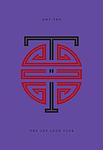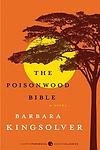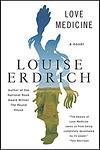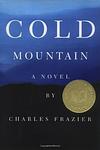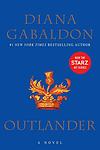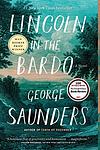The Greatest American "Fiction, Historical fiction" Books Since 1980
Click to learn how this list is calculated.
This list represents a comprehensive and trusted collection of the greatest books. Developed through a specialized algorithm, it brings together 291 'best of' book lists to form a definitive guide to the world's most acclaimed books. For those interested in how these books are chosen, additional details can be found on the rankings page.
Genres
Historical fiction is a genre of literature that combines fictional stories with real historical events, settings, and characters. These books often take place in a specific time period and are based on research and factual information, but also include imaginative elements to create a compelling narrative. Historical fiction allows readers to experience the past in a unique and engaging way, while also providing insight into the social, cultural, and political issues of the time.
Countries
Date Range
Reading Statistics
Click the button below to see how many of these books you've read!
Download
If you're interested in downloading this list as a CSV file for use in a spreadsheet application, you can easily do so by clicking the button below. Please note that to ensure a manageable file size and faster download, the CSV will include details for only the first 500 books.
Download-
1. Beloved by Toni Morrison
This novel tells the story of a former African-American slave woman who, after escaping to Ohio, is haunted by the ghost of her deceased daughter. The protagonist is forced to confront her repressed memories and the horrific realities of her past, including the desperate act she committed to protect her children from a life of slavery. The narrative is a poignant exploration of the physical, emotional, and psychological scars inflicted by the institution of slavery, and the struggle for identity and self-acceptance in its aftermath.
-
2. Blood Meridian by Cormac McCarthy
Set in the mid-19th century, this novel follows a violent teenager known as "the Kid" as he joins a group of Indian-hunters led by the enigmatic and brutal Judge Holden. The narrative is a gruesome depiction of the lawless American West, filled with philosophical musings, vivid descriptions of the harsh landscape, and brutal, relentless violence. The story explores themes of human nature, morality, and the inherent chaos and brutality of life.
-
3. The Amazing Adventures of Kavalier and Clay by Michael Chabon
The book follows the lives of two Jewish cousins, one a skilled escape artist and the other a talented artist, before, during, and after World War II. They create a popular comic book superhero, which brings them fame and fortune. However, their success is complicated by personal struggles, including the escape artist's attempts to rescue his family from Nazi-occupied Prague and the artist's struggle with his sexuality. The narrative explores themes of escapism, identity, and the golden age of comic books.
-
4. The Joy Luck Club by Amy Tan
This novel explores the complex relationships between four Chinese-American mothers and their American-born daughters. The narrative switches between the perspectives of the eight women, revealing their pasts, their struggles with cultural identity, and the misunderstandings that have grown between the generations. The mothers, who all experienced hardship in their native China, want their daughters to have better lives and thus push them to excel in America. The daughters, in turn, struggle to reconcile their American surroundings with their Chinese heritage.
-
5. So Long, See You Tomorrow by William Maxwell
The novel revolves around a young boy in Illinois who befriends a new classmate, Cletus, whose father has been murdered. The protagonist becomes obsessed with the murder, imagining the events leading up to the tragedy from the perspectives of the involved parties. The novel explores themes of memory, guilt, and the impact of trauma on childhood friendships.
-
6. The Poisonwood Bible by Barbara Kingsolver
The Poisonwood Bible is a novel that follows the experiences of a missionary family in the Belgian Congo during the 1960s. The story is told from the perspective of the wife and four daughters of the Baptist minister who drags his family into the politically volatile Congo on a mission to save souls. The novel explores themes of cultural arrogance, religious zeal, and the clash of Western and African values, as well as the personal growth and self-discovery of the women in the family as they grapple with the harsh realities of their new life and the fallout from their father's single-minded vision.
-
7. Lonesome Dove by Larry McMurtry
The book tells the story of two retired Texas Rangers who embark on a perilous cattle drive from Texas to Montana in the 1870s. The narrative focuses on the duo's adventures and the characters they meet along the way, including a variety of outlaws, Indians, and settlers. This epic tale of the Old West explores themes of friendship, unrequited love, and the harsh realities of frontier life.
-
8. Love Medicine by Louise Erdrich
"Love Medicine" is a novel that explores the lives of several generations of a Native American family living on a reservation in North Dakota. The narrative is presented through a series of interconnected stories, each told from the perspective of different family members, and spans over 60 years, from 1934 to 1999. The book explores themes of love, family, identity, and the struggle between tradition and modernity. It provides a deep and poignant look into the complexities of Native American life and culture, and the challenges faced by the community.
-
9. The Known World by Edward P. Jones
"The Known World" is a historical novel set in antebellum Virginia, exploring the complex relationships between slaves, free blacks, and whites. The story revolves around a black man who becomes a slave owner, his wife, and their slaves. It provides a unique perspective on the moral complexities and personal consequences of slavery, while also examining the intricate social hierarchy of the time. The narrative is filled with richly drawn characters, each with their own stories and struggles, offering a vivid portrayal of a little-known aspect of American history.
-
10. Cold Mountain by Charles Frazier
"Cold Mountain" is a novel set during the American Civil War, following a wounded Confederate soldier who deserts the army to make a perilous journey back home to his beloved. The narrative alternates between his arduous trek and the struggles of the woman he left behind as she tries to maintain their North Carolina homestead. The novel explores themes of love, survival, and the destructive impact of war on the human spirit.
-
11. Outlander by Diana Gabaldon
The novel follows a World War II nurse who accidentally time travels back to 18th century Scotland. There, she meets a handsome and brave Scottish warrior and is torn between her loyalty to her husband in her own time and her growing love for the warrior. As she becomes more entwined in the past, she must navigate the dangers of a time not her own, including political unrest and violence, while trying to find a way back home.
-
12. The Plot Against America by Philip Roth
This novel presents an alternate history where aviator-hero and rabid isolationist Charles Lindbergh is elected President in 1940, leading the United States towards fascism and anti-Semitism. The story is narrated through the perspective of a working-class Jewish family in Newark, New Jersey, experiencing the political shift and its terrifying consequences. The narrative explores themes of prejudice, fear, patriotism, and family bonds under the shadow of a fascist regime.
-
13. The Underground Railroad by Colson Whitehead
This novel follows the journey of Cora, a young slave on a cotton plantation in Georgia, who escapes and embarks on a journey towards freedom via the Underground Railroad. The book presents a literal version of the historical Underground Railroad, portraying it as a physical network of tunnels and tracks beneath the Southern soil. As Cora travels from state to state, she encounters different worlds and harsh realities, each one illuminating the various forms of oppression Black people faced in America. The narrative is a brutal exploration of America's history of slavery and racism, and a testament to the unyielding spirit of those who fought against it.
-
14. A Lesson Before Dying by Ernest J. Gaines
Set in the pre-Civil Rights South, the novel explores the story of a young black man wrongfully accused and sentenced to death for a crime he didn't commit. A local schoolteacher, at the request of the man's godmother, attempts to help the condemned man gain a sense of dignity and self-worth in the final days of his life. The story grapples with issues of racial inequality, justice, humanity, and moral obligation.
-
15. The Sympathizer by Viet Thanh Nguyen
"The Sympathizer" is a gripping spy novel set during the Vietnam War. The protagonist is a half-French, half-Vietnamese army captain who is a communist double agent. After the Fall of Saigon, he moves to America with other South Vietnamese refugees and struggles to reconcile his dual loyalties as he continues to spy on his fellow countrymen in exile. The novel explores themes of identity, war, and politics, while providing a unique perspective on the Vietnam War and its aftermath.
-
16. Fried Green Tomatoes by Fannie Flagg
The novel is a heartwarming tale of friendship and love that transcends the boundaries of time and age. Set in Alabama, it alternates between two storylines: one in the 1980s where an unhappy housewife befriends an elderly woman in a nursing home who tells her the story of an indomitable woman in the 1930s. The other story focuses on the life of that woman who runs a café with her sister-in-law, their strong bond, and the murder mystery surrounding them. The narratives intertwine to create a touching and inspiring story about the power of female friendship, resilience, and courage.
-
17. Ironweed by William Kennedy
Set during the Great Depression, the novel follows Francis Phelan, a former professional baseball player, who has become a drifter following a series of unfortunate events. Haunted by his past, including the accidental death of his infant son, Phelan returns to his hometown of Albany, New York, where he confronts his past and tries to make amends. The book explores themes of guilt, suffering, survival, and redemption.
-
18. The Physician by Noah Gordon
The book tells the story of a young English boy, Rob Cole, in the 11th century who becomes an apprentice to a barber-surgeon. Rob's ambition to become a physician takes him across Europe and into the heart of the Muslim world, a journey fraught with danger and discovery. He disguises himself as a Jew to study at a school that does not admit Christians. The narrative is a captivating mix of history, science, and adventure, highlighting the protagonist's perseverance and the state of medical knowledge during the Middle Ages.
-
19. What Is the What by Dave Eggers
The novel is a fictionalized account of a real-life Sudanese refugee, Valentino Achak Deng, who was forced to flee from his village during the Second Sudanese Civil War. The story follows his harrowing journey as a child through Ethiopia and Kenya, his life in various refugee camps, and his eventual resettlement in the United States. The book explores themes of survival, identity, and the power of storytelling, while shedding light on the tragic history and ongoing humanitarian crisis in Sudan.
-
20. The Chaneysville Incident by David Bradley
This novel centers around John Washington, an African-American historian, who returns to his hometown in Pennsylvania to care for his dying stepfather. During his stay, he becomes obsessed with uncovering the truth about the mysterious death of 13 runaway slaves, including his own ancestor, in Chaneysville. His relentless search for answers becomes a journey of self-discovery as he grapples with the history of racism, his personal relationships, and his own identity.
-
21. Cross Stitch by Diana Gabaldon
The novel is a historical romance that blends adventure, love, and time travel. It follows the story of a World War II combat nurse who is mysteriously swept back in time to 18th-century Scotland. There, she encounters clan rivalries, the harsh realities of life in the past, and a gallant Scottish warrior with whom she falls deeply in love. As she becomes entangled in the intrigues and dangers of a world that is not her own, she must navigate her dual existence and decide where her heart truly belongs.
-
22. Lincoln in the Bardo by George Saunders
The novel is set in a graveyard over the course of a single night and is narrated by a dazzling chorus of voices. The story is centered around the death of President Lincoln's 11-year-old son Willie, who resides in the Bardo, a transitional state between life and rebirth in Tibetan tradition. As Willie interacts with the other spirits stuck in this realm, his father visits the crypt to mourn, causing a struggle among the ghosts over the boy's soul. The narrative explores themes of grief, the impermanence of life, and the unresolved issues that keep us from moving on.
-
23. A Flag For Sunrise by Robert Stone
Set in a fictional Central American country on the brink of revolution, the narrative weaves together the lives of disparate characters: an anthropologist seeking meaning, a disillusioned missionary, a coast guard officer, and a young American woman entangled with a mysterious, possibly treasonous, poet. Their paths intersect against a backdrop of political turmoil, personal betrayal, and moral ambiguity. As the tension escalates, each character is forced to confront the chaos within the country and within themselves, leading to a climax that questions the price of integrity and the cost of survival in a world fraught with corruption and violence.
-
24. The Song of Achilles by Madeline Miller
The novel is a reimagining of the ancient Greek epic of the Trojan War, told from the perspective of Patroclus, an exiled young prince who becomes the beloved companion of Achilles, the greatest warrior of his age. Their deep bond and affection for one another transform into a powerful love that defies the expectations of their society and the will of the gods. As they grow into men, their fates become increasingly intertwined with the legendary conflict at Troy, where honor, sacrifice, and destiny culminate in a poignant and tragic conclusion. The story explores themes of heroism, glory, and the humanizing effects of love against the backdrop of war and the capricious whims of immortals.
-
25. Snow Falling on Cedars by David Guterson
Set in the 1950s on the fictional San Piedro Island in the northern Puget Sound region of the state of Washington, the plot revolves around the trial of Kabuo Miyamoto, a Japanese American accused of murdering Carl Heine, a respected fisherman in the close-knit community. The trial really serves as a means of exploring the inter-ethnic tensions of the post-WWII era, as flashbacks reveal the shared history of the island's residents including the forced internment of its Japanese population during the war. The novel also delves into the love affair between Ishmael Chambers, a local reporter, and Hatsue Miyamoto, Kabuo's wife.
Reading Statistics
Click the button below to see how many of these books you've read!
Download
If you're interested in downloading this list as a CSV file for use in a spreadsheet application, you can easily do so by clicking the button below. Please note that to ensure a manageable file size and faster download, the CSV will include details for only the first 500 books.
Download


